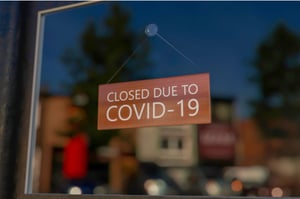An Italian company Vengari SpA set up a joint venture (‘JV’) with French company Gonier SA for the production of goods in a special common segment of their respective markets. Both companies were suppliers to the JV. The JV significantly underperformed and Vengari believed this was a result of Gonier violating its obligations under the joint venture agreement. According to Vengari this behaviour resulted in a EUR 15m loss, which should be compensated by Gonier. However, Gonier was of the opinion that the JV’s underperformance was a result of certain economic circumstances beyond the control of the parties, and that they therefore could not be held accountable.
Pre-trial settlement discussions
The agreement contained a dispute resolution clause as well as a choice of law and jurisdiction clause.
The dispute resolution clause required the parties to first attempt to resolve all disputes amicably, including a referral to the highest-level decision-makers within the companies. If these efforts failed, the agreement provided for the possibility of a party requesting mediation which the other party was obliged to seriously consider, without being obliged to accept it. Only then, if all these efforts failed, could a party commence arbitration proceedings in Paris as the exclusive means of resolving disputes.
Vengari attempted to resolve the dispute amicably in accordance with the dispute resolution clause, but it was quickly clear that the parties’ positions were so divergent that no satisfactory solution was within reach. Vengari’s CFO requested the company’s general counsel to set a budget for the litigation, as he was concerned about investing any more money in what had become a lossmaking venture. Based on an initial estimate, the general counsel came up with a budget of EUR 1.2m consisting of the costs of arbitration, lawyer fees and expenses, expert fees, translation costs, and other expenses. In addition, he informed the CFO that a loss in the case could result in an order to pay the adverse party’s legal costs up to a total of EUR 0.9m. The cost of litigation could therefore, in the worst-case scenario, amount to EUR 2.1m for Vengari.
The litigation funding agreement
Vengari sought a solution to reduce the costs and uncertainty associated with the litigation and determined that recourse to an external funder seemed to be the best solution. It entered into a litigation funding agreement which provided for (i) the funder paying all costs associated with the arbitration, without limitation; (ii) the funder paying the adverse party’s costs if Vengari were to lose the case; (iii) the company paying the funder a 30% share of the proceeds of the litigation. In addition, it was agreed that the funder would coordinate the conduct of the litigation while providing regular updates to Vengari and seeking Vengari’s instructions for every important decision to be taken in the litigation.
Vengari wished to retain the services of its main external law firm, which the funder agreed to, subject to agreement on an economic arrangement for the litigation. The funder used its in-house damage calculation expertise developed over years of involvement in large investment recovery actions to demonstrate the losses suffered by Vengari and the causal link with Gonier’s behaviour in breach of the joint venture agreement. The funder also involved a renowned economic expert to act as expert witness in the case. Each appointment of an external service provider was always approved by Vengari. Vengari’s lawyers were satisfied that the funder acted in a coordinating and supporting role, so the lawyers could focus entirely on developing legal arguments, drafting court briefs and representing Vengari at the oral hearings.
Arbitration and settlement
After the arbitration panel was installed and the parties had exchanged several rounds of briefs, the parties started settlement discussions. On Vengari’s side, the company’s general counsel, the lawyers and the funder played an active role in the settlement discussions. The discussions lasted almost a year but eventually led to an agreement according to which Gonier agreed to pay EUR 9m as a settlement, in addition to 60% of the fees Vengari owed to its funder (i.e. EUR 1.6m of a total EUR 2.7m). Therefore, Vengari’s net recovery was EUR 7.9m. In total it took close to 3 years to resolve the dispute.
The funding agreement did not only remove the financial uncertainty and entire downside associated with the litigation for Vengari, it also reduced its impact on daily operations as the funder played an active role in case management and coordination.





